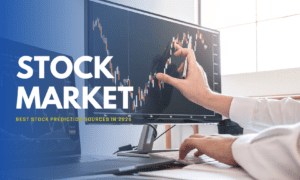Did you know that over five billion people globally are active on social media? This massive user base is not just sharing memes and photos; they’re influencing financial markets. As someone who’s covered social media trends for years, I’ve seen its evolution from a communication tool to a significant market force.
The GameStop saga in early 2021, where retail investors on Reddit’s WallStreetBets forum drove the stock price up, highlighted the power of collective online action. This wasn’t just a fluke; it marked a turning point where social media began to disrupt traditional financial systems. Retail investors now turn to platforms like Reddit, Twitter (now X), and TikTok for investment advice, discussions, and real-time updates. These platforms have become dynamic environments where information spreads rapidly, influencing market behavior almost instantaneously.
The Evolution of Social Media’s Influence
Social media has evolved significantly since its inception. In the early 2000s, platforms like MySpace and Friendster were among the first to connect people online, but their influence was limited to personal connections and entertainment. The introduction of Facebook in 2004 revolutionized social networking, providing a more sophisticated platform for users to share and consume content.
Twitter, launched in 2006, further transformed the landscape by allowing real-time updates and conversations. The ability to share news instantly and engage in public discourse made Twitter a powerful tool for information dissemination. The financial world soon realized the potential of these platforms. Financial news and stock tips started trending, leading to the creation of finance-focused communities.
A pitch I received recently highlighted this ongoing trend. George Kailas, CEO of Prospero.ai, emphasized, “Social media is continuing to revolutionize every aspect of our lives, including investment. The swift dissemination of information online allows individuals to retain market knowledge and discuss it freely through threads and forums.” This insight captures the essence of how social media is changing investment landscapes.
The Rise of Retail Investor Communities
The rise of retail investor communities on social media has democratized financial information. Platforms like Reddit’s WallStreetBets, StockTwits, and various finance subreddits have become central hubs for retail investors. These communities share stock tips, market analyses, and discuss potential investment opportunities, often leading to coordinated investment actions.
Integrating artificial intelligence (AI) with social media data opens new avenues for market analysis and prediction. AI algorithms can sift through massive amounts of social media chatter, identify sentiment trends, and correlate them with market movements. This tech-driven approach provides a more nuanced understanding of market dynamics, enabling investors to make more informed decisions.
However, the same platforms that can amplify good information can also spread misinformation, leading to volatile market movements based on speculative or false data. Investors must exercise caution and critical thinking when relying on social media for investment decisions.
The Impact on Financial Markets
The impact of social media on companies like GameStop and Twitter illustrates how online sentiment can cause significant stock fluctuations. George Kailas noted, “AI and social media have drastically changed the avenues of analysis and predictions for the market today, but they do not control it. Yes, the online world is intertwining itself with the financial markets; however, other signals such as growth and market similarity still prove incredibly effective.”
While social media trends can provide valuable insights, they should be considered alongside traditional market indicators and fundamental analysis. The future of investing will likely involve a hybrid approach, combining the immediacy and reach of social media with the depth and rigor of traditional financial analysis.
Empowering Retail Investors
For retail investors, the democratization of financial information through social media is empowering. No longer are investment insights the exclusive domain of institutional investors. With the right tools and a discerning eye, individual investors can now access and act on market information that was once out of reach.
In conclusion, the influence of social media on financial markets is undeniable and growing. As we navigate this new landscape, it’s essential to leverage the power of social media responsibly, using it as a complement to, rather than a replacement for, traditional investment strategies. The integration of AI further enhances our ability to understand and predict market movements, heralding a new era of informed and empowered investing.
Photo by Dave Adamson



































